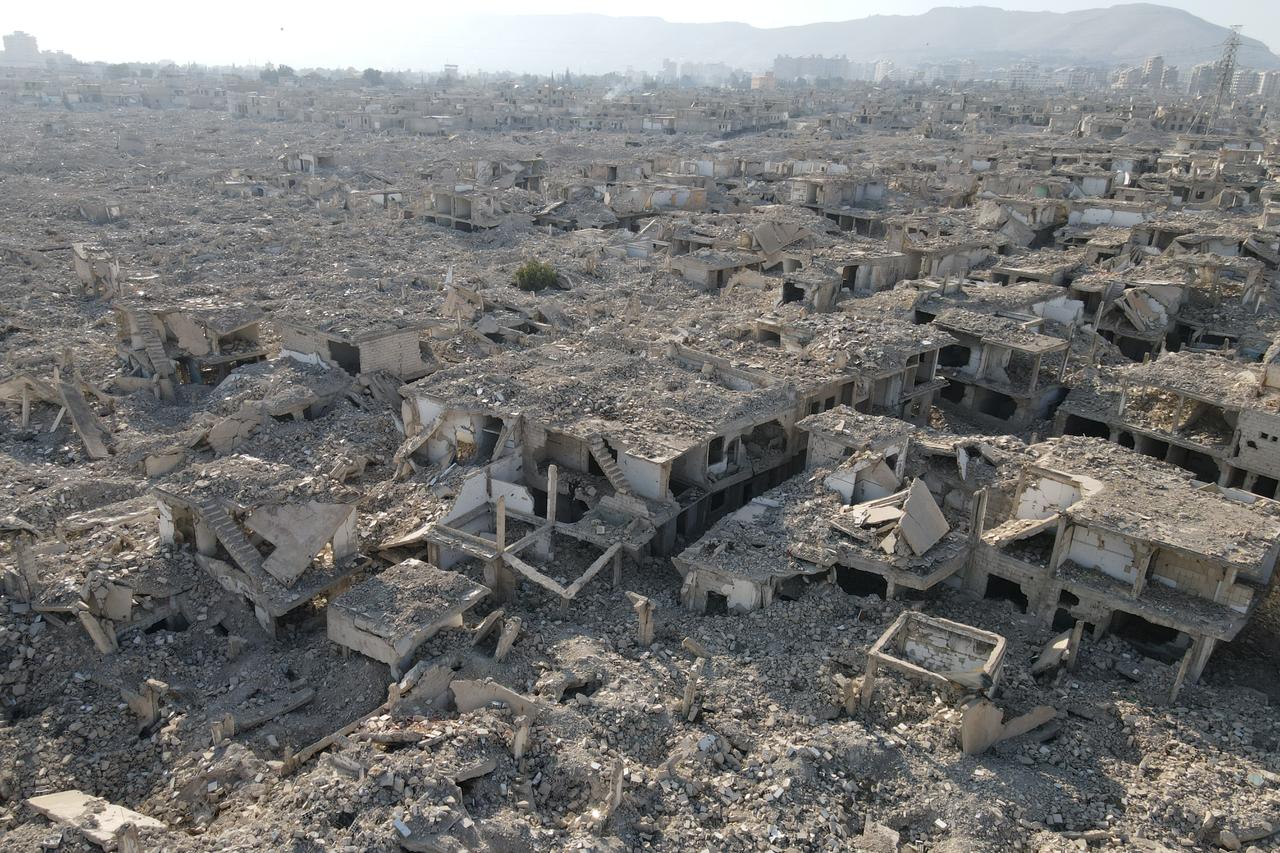
The World Bank estimated Syria's post-conflict reconstruction cost at $216 billion following over 13 years of fighting, according to a report published on Tuesday assessing physical damage to infrastructure and buildings nationwide.
The "Syria Physical Damage and Reconstruction Assessment 2011-2024" report evaluated infrastructure and building assets throughout the country. The assessment found that approximately one-third of Syria's pre-conflict gross capital stock sustained damage.
Direct physical damage to infrastructure, housing, and non-residential buildings totaled an estimated $108 billion, according to the World Bank statement.
Infrastructure sustained the most damage among assessed categories, comprising 48% of total damage. Aleppo, rural Damascus, and Homs emerged as the most severely affected regions in terms of total damage.
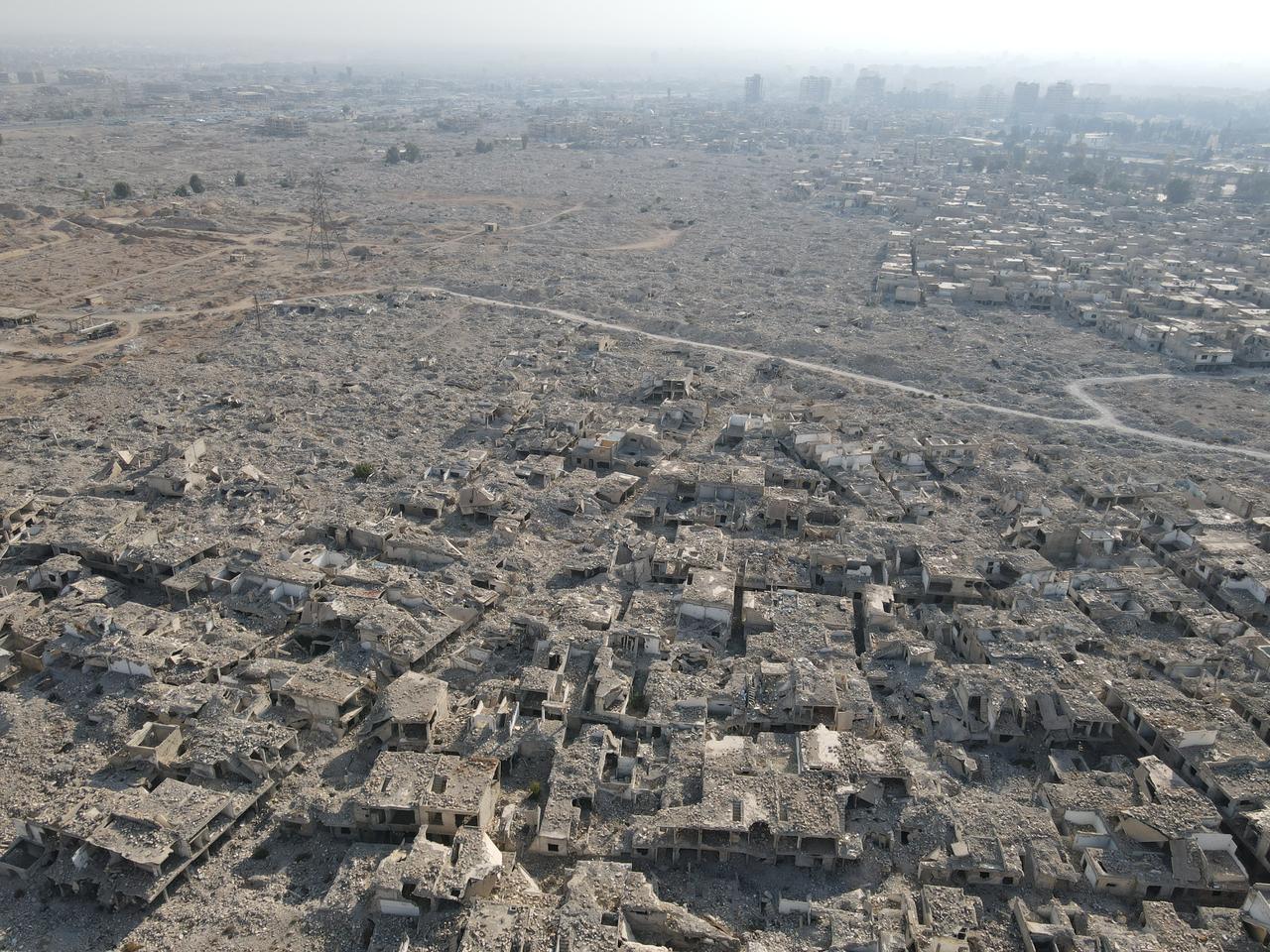
Reconstruction costs for damaged physical assets were projected to range between $140 and 345 billion. The World Bank identified $216 billion as the most likely estimate.
The $216 billion figure comprises $75 billion for housing reconstruction, $59 billion for non-residential structures, and $82 billion for infrastructure. Aleppo and rural Damascus require the highest reconstruction investment.
Estimated physical reconstruction costs equal approximately 10 times Syria's projected 2024 gross domestic product, highlighting the scale of challenges and the substantial need for international support, the World Bank said.
The conflict devastated Syria's economy. Real gross domestic product contracted approximately 53% between 2010 and 2022. Nominal gross domestic product declined from $67.5 billion in 2011 to an estimated $21.4 billion in 2024.
"The challenges ahead are immense, but the World Bank stands ready to work alongside the Syrian people and the international community to support recovery and reconstruction," said Jean-Christophe Carret, World Bank Middle East Division Director.
"Collective commitment, coordinated action, and a comprehensive, structured support program are critical to helping Syria on its path to recovery and long-term development," Carret noted.
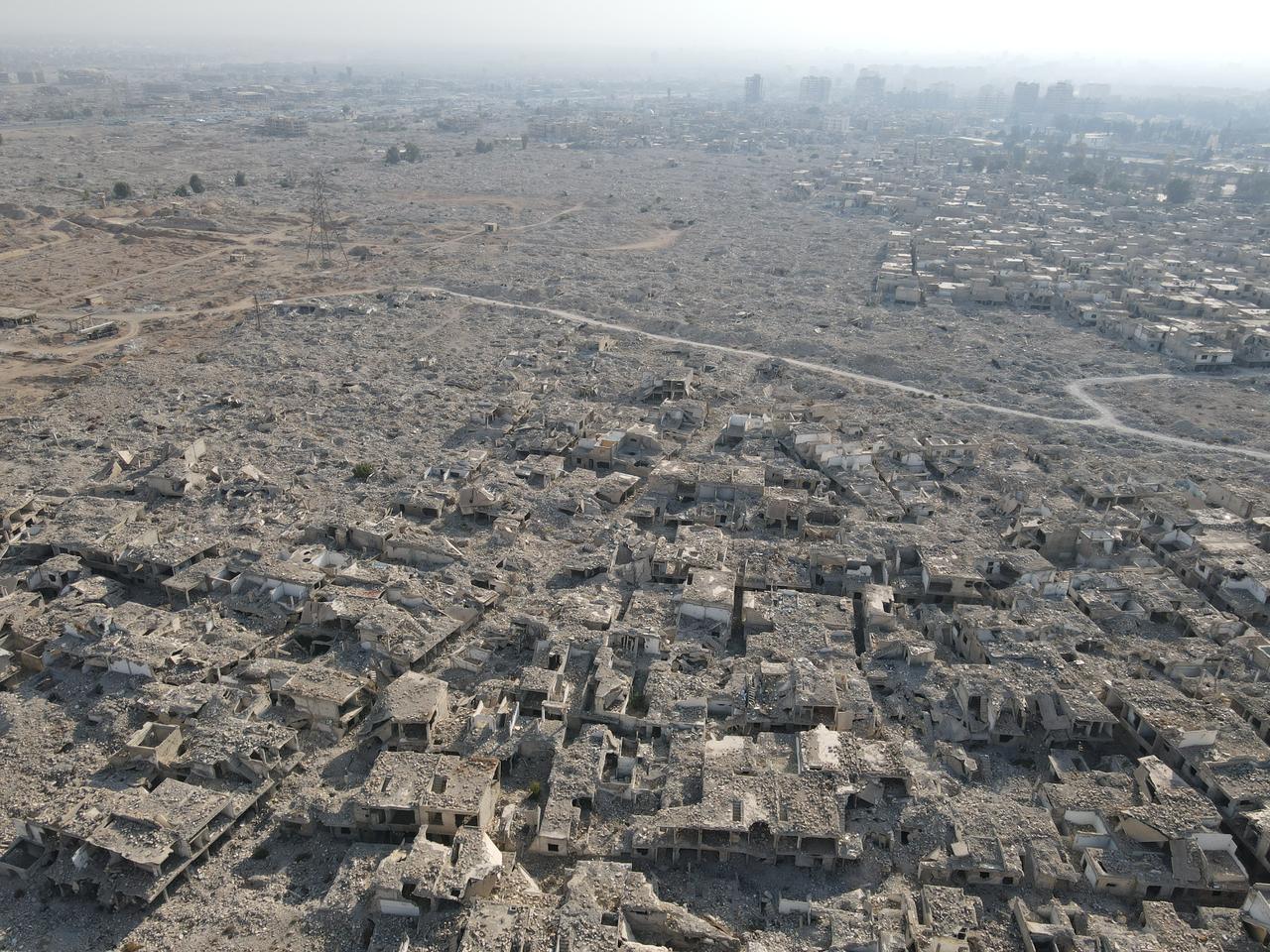
Syria hopes the United States will fully lift sanctions in the coming months and has begun restructuring billions of dollars in debt accumulated during the previous regime, Economy Minister Mohammad Nidal al-Shaar said.
U.S. President Donald Trump ordered the lifting of most U.S. sanctions on Syria in May after meeting President Ahmed al-Sharaa. However, the Caesar Syria Civilian Protection Act of 2019, which authorizes sanctions, remains U.S. law.
"We have to do some pushing and some lobbying to continue with this path that started in the right direction, and we're hoping by the end of the year the bill to scrap the act will reach the president, and hopefully he'll sign it," al-Shaar told Reuters during a London conference.
"And once that happens, then we are sanctions-free," al-Shaar said.
"Removing sanctions will enable foreign investment, restore international banking access, and revive key industries," al-Shaar said, as he hopes Washington will reduce its 41% tariffs on trade with Syria and that U.S. firms will invest as the economy opens.
"Gulf countries have pledged support and Chinese firms committed hundreds of millions of dollars for cement, plastic, and sugar factory projects," al-Shaar said.
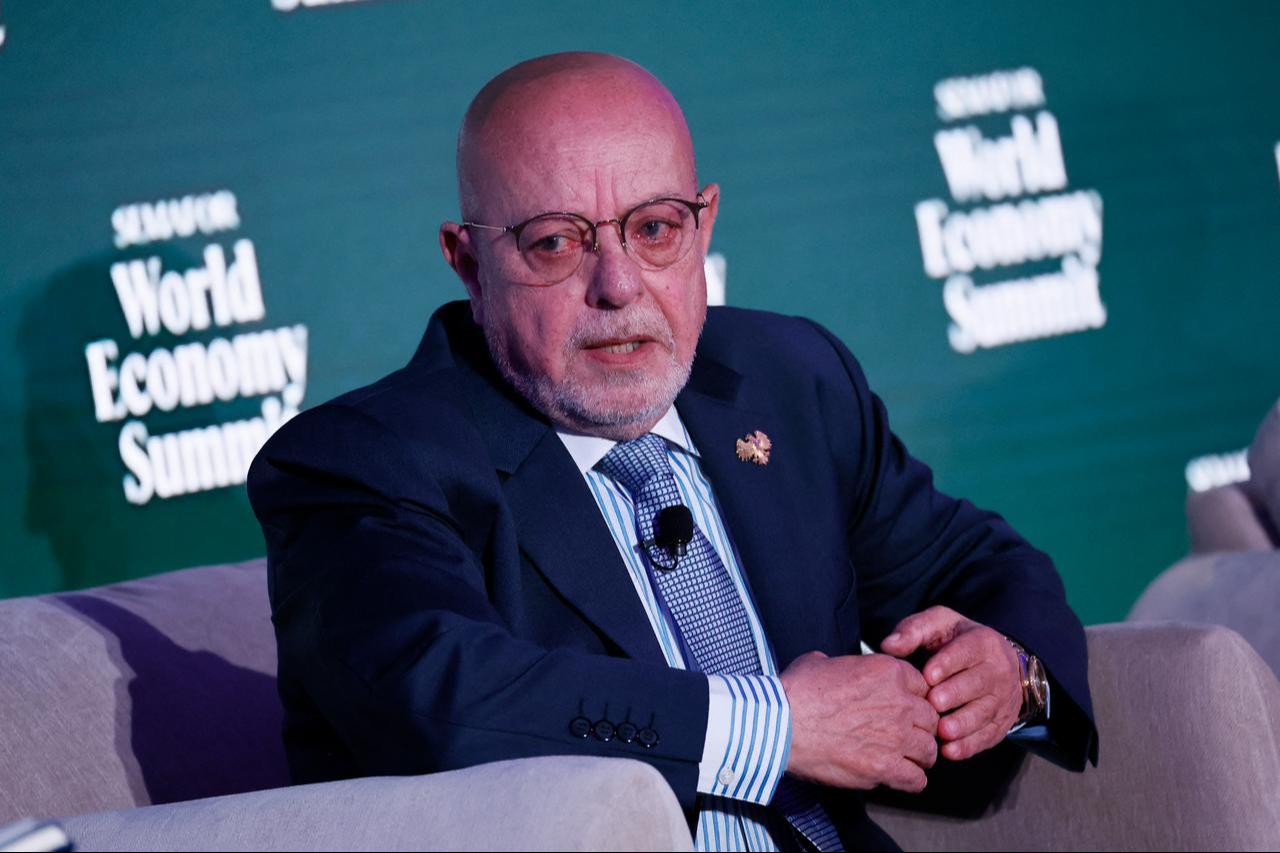
The Syrian government plans to introduce a new currency early next year. Sources indicated in August that new banknotes would be issued in December, removing two zeros and the previous regime figure from the currency to restore public confidence.
Syria's pound has lost over 99% of its value since the civil war began in 2011 but has been broadly stable in recent months.
"We're consulting with many entities, international organizations, and experts, and eventually it will come very soon," al-Shaar said of the currency plan.
Regarding debt restructuring, al-Shaar said the process had already begun. "The sovereign debt that we have, which is not very big actually, will be restructured," he said, noting Syria will request grace periods and other relief.
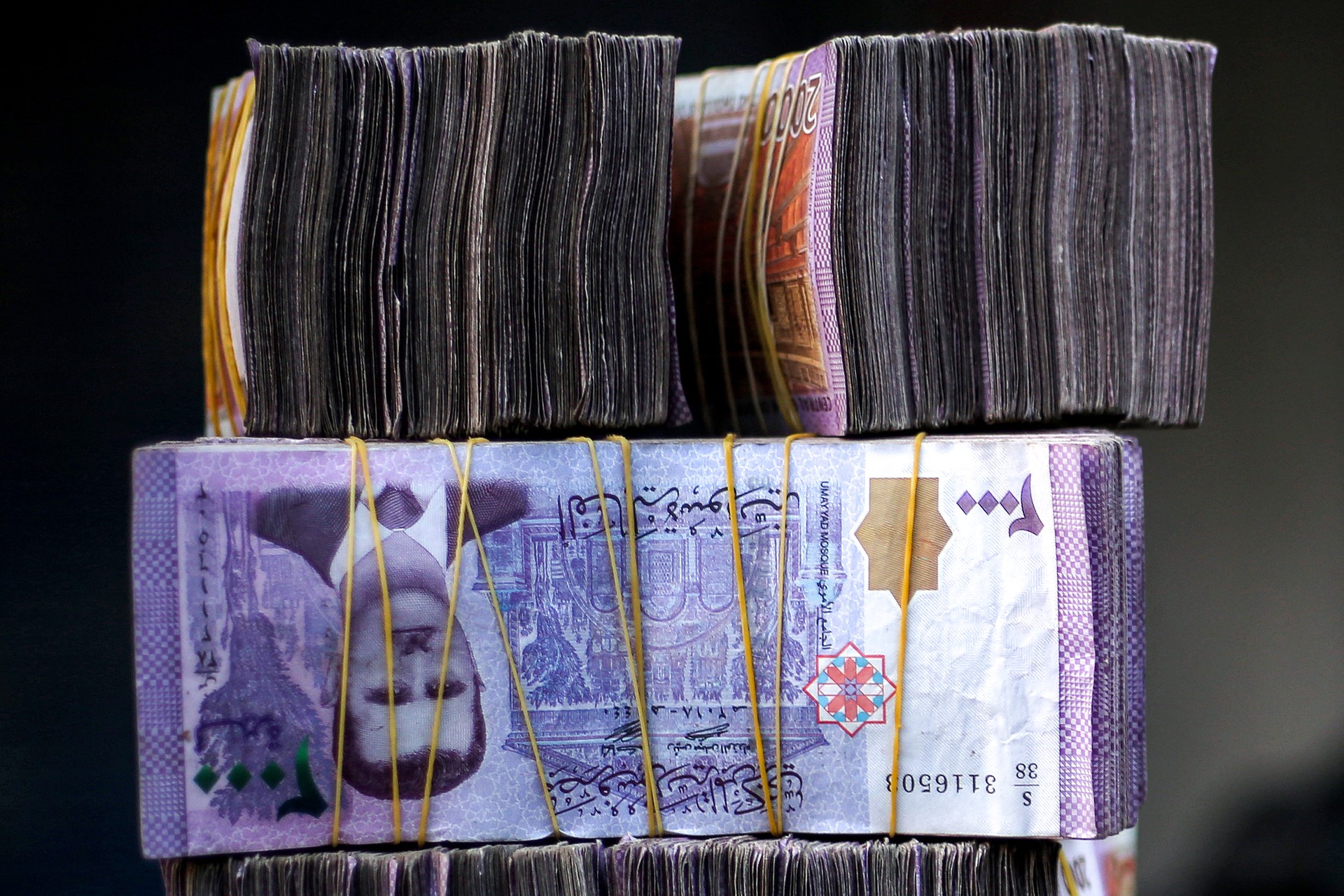
Al-Shaar said reconstruction costs could exceed $1 trillion if the rebuild modernizes infrastructure, though the effort will be spread over a long timeframe. Housing reconstruction alone is likely to take 6 to 7 years.
Fighting continued in the oil-producing north until a ceasefire was struck this month. Al-Shaar expressed hope for reaching agreements with groups controlling that region within weeks or months.
"Once that happens, I think we will have greater ability, financially and in natural resources, to really start meaningful investment projects," al-Shaar said, predicting a "quantum leap in our gross domestic product (GDP)."